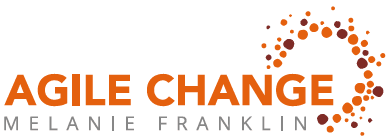Many organisations are currently in a “crisis” mode, where they are doing what they can to service their customers and continue their internal improvement programs.

As the current lock-downs around the world morph into something new (too early to say they are coming to an end) we need to develop our understanding of the “new” normal.
We will not return to a world exactly as we left it. We have adapted at a fast pace and many of the changes are ways of working that we will seek to retain.
For individuals, we need to consider how our working lives will be different, and the impact this has on our work-life balance, and the new possibilities and priorities this will generate.
For organisations, the probability of global recession triggers an impact on strategic direction, and choices to be made about how work is structured, who delivers it and who we are targeting as customers.
To try to work out how the post-Covid world will look for individual workers, I think we need to first consider the type of work that we do:
For the first two categories, social distancing will have the greatest impact on ways of working but it is unlikely to alter the job itself or the location where it is carried out.
The biggest impact from this pandemic is on knowledge workers, as the move to virtual working during the crisis questions the need to return to any kind of formal, shared working space in the future.

If we are no longer bound by a shared location with our co-workers, this has a profound affect on our choice of location and living space. If we don’t have to live somewhere with a convenient commute to work, that offers up huge possibilities. If we are going to work from home more often, then we need space to do this, and a pleasant working environment. Therefore, the quality of our home becomes more important to us.
Experiences of this home-working are not all positive, and some people are realising that constant on-line meetings with colleagues, followed by intense periods of data analysis, reviewing reports and creating plans and presentations is not how they want to spend their life.
Others have realised that it is the society and community of their co-workers that make their jobs interesting and if that is no longer a part of their role, then they will need to find work where they do come into contact with people on a daily basis.
Whilst being in the thick of a crisis is not the best time to make sudden changes, I am already seeing evidence of people identifying new possibilities and defining new career paths for themselves.
One of the most common change initiatives in organisations at the moment is a re-definition of their operation models. Creating a Target Operating Model and the subsequent re-structure that this triggers, along with transformations towards digital working, streamlined processes and process automation has dominated the change management arena in the last few years.

This crisis has only accelerated the desire to make these changes, so I thought I would highlight some of the big questions facing organisations using the common headings from these operating models:
Re-designing processes to support on-line working including digital signatures and removal of the need for paper filing and archiving. Streamlining processes to reduce the cost of service, and make it more easy to collaborate with colleagues and customers online.
There will be winners and losers as a result of the global recession we are likely to experience. Already it is clear airlines and all those in their supply chain are feeling the effects of this crisis. There is a need to reinvent how we meet potential new customers, as face to face exhibitions and sales meetings are reduced.
The old silo-based working and presenteeism doesn’t work in a decentralised model, where everyone is working from their own homes. Leadership skills come under pressure in these circumstances and there is already a great deal of interest in techniques to lead virtual teams. There is also a need for new skills in engaging customers remotely and understanding how technology supports our work.
Greater automation has become a top agenda item in the boardroom but so has the need to understand what data an organisation had and how it is controlled. There is concern about the lack of skills to support digital working at all levels of the organisation, leading to an increase in training requirements.
The obvious change for organisations with high volumes of knowledge workers is a reduction in the amount and location of office space. Already there is evidence that where leases are coming due for renewal in city centre locations, organisations are using this as an opportunity to move to different and smaller premises.
Others are re-designing the space they have to account for social distancing, and creating spaces where staff can visit, perhaps to meet customers or get IT support or training, but not for day to day work.
All of these ideas are work in progress and will continue to evolve at a fast pace in the next few months. Get in touch and share your experience of how the world of work is changing.
